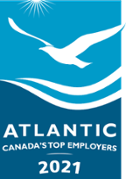Territorial Acknowledgment: The University of New Brunswick recognizes and respectfully acknowledges that all UNB course interactions take place on the unsurrendered and unceded traditional lands of Wolastoqiyik (Maliseet). This territory is covered by the Treaties of Peace and Friendship which the Wolastoqiyik (Maliseet), Mi'kmaq and Passamaquoddy peoples first signed with the British Crown in 1725. The treaties did not deal with surrender of lands and resources but in fact recognized Wolastoqey (Maliseet), Mi'kmaq and Passamaquoddy title and established the rules for what was to be an ongoing relationship between nations.
The Faculty of Education at the University of New Brunswick invites applications for a continuing tenure track position at the rank of Assistant Professor in the area of First Nations Education. Applicants must have a doctoral degree (or have made significant progress toward completion of their program) in First Nations Education, or a related field. The successful candidate will have evidence of or demonstrated potential for excellence in teaching, will have demonstrated knowledge in the exploration of indigenous and non-indigenous pedagogical practices, and a beginning record of scholarly publishing. Some direct experience in First Nations community-based research is required. The appointee will need to establish links with various local First Nation communities' agencies and other colleagues working in this area. The preferred candidate will be of First Nations heritage.
Responsibilities will include teaching at the undergraduate and graduate levels, coordinating academic programming in the Mi'kmaq-Wolastoqey Centre, supervising graduate student research in the Faculty of Education, working with other faculty in and pursuing program funded research and scholarship. The appointment, effective July 1, 2020 or as soon as possible thereafter, will be at the Assistant Professor level.
The University of New Brunswick is one of the oldest public universities in Canada. It offers degrees in more than 60 disciplines encompassing a range of academic and professional programs. The Faculty of Education offers graduate and undergraduate programs in teacher education, as well as various graduate programs. The Mi'kmaq-Wolastoqey Centre has been a part of the faculty and university for over 30 years and offers a First Nations Teacher Education Program, a Bridging Year program for students entering a university degree for the first time and will begin to offer a Wabanaki Master of Education degree program in the near future. MWC is also expanding their public outreach and offering public colloquia and Mi'kmaq and Wolastoqey language courses. MWC is also the home of the UNB University Elder in Residence.
Fredericton, New Brunswick is located along Wolastoq (St. John River), has many kilometers of walking trails and a very active arts community. Noted as one of the world's "smartest cities", Fredericton provides an opportunity for a balanced, environmentally friendly lifestyle.
Applications should be submitted no later than November 30, 2019. A letter of application, current curriculum vitae, a statement of research interests, two examples of scholarly publications reflecting your current research interests, a teaching portfolio, and names of three referees (one may be from outside a university) should be sent.
Application packages should be directed to:
Dean
Faculty of Education, University of New Brunswick
PO Box 4400, Fredericton, NB, Canada E3B 5A3
Email: wjones@unb.ca
Phone 506-453-4862
Fax: 506-453-3569
Short-listed candidates will be required to provide satisfactory proof of credentials including appropriately certified translations of credentials into English, as applicable.
The University of New Brunswick is committed to employment equity and fostering diversity within our community and developing an inclusive workplace that reflects the richness of the broader community that we serve. The University welcomes and encourages applications from all qualified individuals who will help us achieve our goals, including women, visible minorities, Aboriginal persons, persons with disabilities, persons of any sexual orientation, gender identity or gender expression. Preference will be given to Canadian citizens and permanent residents of Canada.


